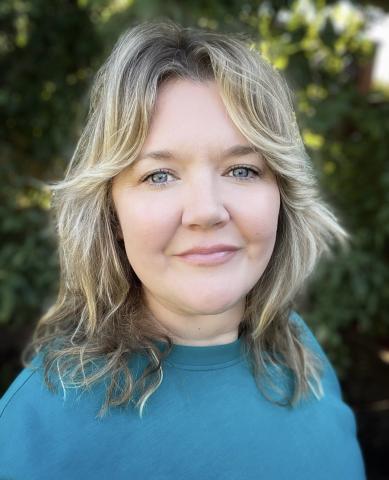
Dr. Margaret Lamar Featured in Counseling Today on the Future of Counselor Education

Dr. Margaret Lamar
Dr. Margaret Lamar, Associate Professor and Associate Department Chair of PAU's Counselor Education and Supervision PhD program, was recently featured in Counseling Today magazine's January 2025 issue, sharing her innovative vision for the future of counselor education.
In the article "The New Classroom," Dr. Lamar advocates for a transformative approach to counselor education that combines competency-based training with lifelong learning principles. "The field changes rapidly and the profession evolves," explains Dr. Lamar. "We need to adopt a lifelong learning model because simply requiring a set number of continuing education hours is not going to keep a counselor truly relevant in our profession in 20 years. In my own experience, I consistently notice how quickly my own formal training has become outdated in an ever-changing world.”
Dr. Lamar outlines three key strategies for implementing this approach: integrating reflective practice into training, establishing structured continuing education requirements, and developing institutional support systems. She emphasizes the importance of creating "robust, flexible continuing education systems that emphasize new developments in mental health, counseling techniques, and social issues."
Another significant reform Dr. Lamar proposes is the establishment of undergraduate counseling education. This change could dramatically increase access to mental health services while creating more diverse pathways into the profession. "It changes the landscape by providing more mental health providers to communities and supporting a more diverse profession," she notes.
Dr. Lamar envisions a future where undergraduate-trained practitioners could support master's level counselors in various capacities, such as conducting intake procedures or assisting in group therapy. "We see this same structure in drug and alcohol counseling," she explains. "It allows master's level counselors to develop more special skills and focus on working more closely with clients." This model would also allow master's programs to develop more specialized education since fundamental clinical skills could be introduced at the undergraduate level.
Dr. Lamar also addresses the current challenges facing counselor education, particularly the financial barriers that limit who can enter the profession. "It is very difficult to do a master's level internship while balancing other aspects of life, including family, friends, work, and the challenges that life brings," she observes. "These financial barriers heavily impact who comes into the profession and who is served following graduation."
The trend of counselors moving from agency work to private practice particularly concerns Dr. Lamar. "The financial burden of graduate school leaves counselors holding multiple jobs or leaving community agencies to go to private practice, so they can pay off their student loans and support their families. This then affects who has access to mental health treatment because agencies have long wait lists and private practice is not accessible for many communities," she notes. To address these challenges, she advocates for changes that would make the profession more accessible while maintaining high standards of care. This includes rethinking how counseling programs structure their internship requirements and finding ways to support students through the licensure process.
Looking toward the future, Dr. Lamar emphasizes the importance of bridging the gap between research and practice. At PAU, she works to encourage master's students to incorporate research into their clinical work. "While they don't need to conduct research like our PhD students, they need to be great consumers of research to stay in-the-know regarding trends in the field and in order to best serve their clients," she explains.
The complete article, featuring Dr. Lamar's insights alongside other leading voices in counselor education, can be found in the January 2025 issue of Counseling Today.
